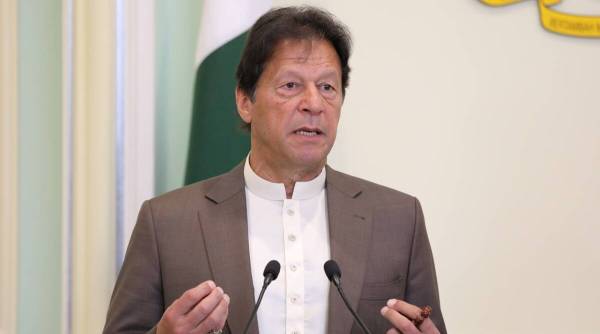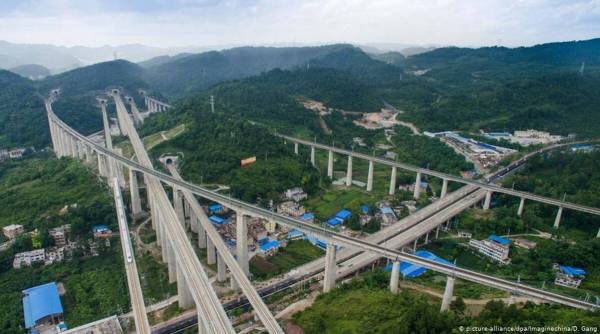
[ad_1]
Here is a round-up of the top developments around the world today.
1. UK to add India’s Covaxin to approved list from November 22
The UK government has said that India’s Covaxin will be added to its list of approved Covid-19 vaccines for international travellers from November 22, meaning that those inoculated with the Bharat Biotech-manufactured jab will not have to self-isolate after arrival in England.
The move follows the World Health Organisation’s (WHO) Emergency Use Listing for Covaxin, which is the second most used formulation in India. Covishield, the India-manufactured Oxford-AstraZeneca COVID-19 vaccine, was added to the UK’s approved list last month.
2. Pakistan announces 1-month cease-fire with Pakistani Taliban
Pakistani authorities Monday announced a month-long cease-fire with a key militant group behind numerous attacks on security forces and civilians over the last 14 years. Government spokesman Fawad Chaudhry said on Twitter that the Taliban government in Afghanistan helped facilitate the cease-fire between the government of Prime Minister Imran Khan and the Tehrik-e-Taliban Pakistan, or TTP.
 Pakistan Prime Minister Imran Khan. (File)
Pakistan Prime Minister Imran Khan. (File)
In a statement, TTP spokesperson Mohammad Khurasani confirmed the cease-fire beginning Nov. 9 will remain in place until Dec. 9, during which both sides will form a committee to continue talks. He said both sides will adhere to the cease-fire.
3. Obama hits Russia, China for “lack of urgency” on climate
Barack Obama expressed confidence at UN climate talks Monday that the Biden administration will ultimately get its $555 billion climate package through Congress, and faulted US rivals China and Russia for what he called a “dangerous lack of urgency” in cutting their own climate-wrecking emissions.
As nations complained of lagging trust and progress in the climate talks, Obama, one of the leaders who paved the way for the historic 2015 Paris climate deal, threw in a touch of his trademark hope but admitted that “images of dystopia” were creeping into his dreams. “There are times where the future seems somewhat bleak. There are times where I am doubtful that humanity can get its act together before it’s too late,” Obama said at the two-week-long negotiations. “(But) we can’t afford hopelessness.”
4. US eyes Jan rollout of first projects to counter China’s Belt and Road, says official
The United States plans to invest in five to 10 large infrastructure projects around the world in January as part of a broader Group of Seven initiative to counter China’s Belt and Road Initiative, a senior US official said on Monday. A US delegation led by President Joe Biden’s deputy national security adviser, Daleep Singh, identified at least 10 promising projects in Senegal and Ghana during the latest in a series of “listening tours” last week, the official said.
 China’s Belt and Road Initiative (BRI) scheme, which Xi launched in 2013, involves development and investment initiatives that would stretch from Asia to Europe and beyond. (DW)
China’s Belt and Road Initiative (BRI) scheme, which Xi launched in 2013, involves development and investment initiatives that would stretch from Asia to Europe and beyond. (DW)
Officials are meeting with government and private-sector leaders as they hunt for projects to be funded under the Build Back Better World (B3W) initiative launched by the G7 rich democracies in June. Plans could be finalised during a G7 meeting in December, the official said.
5. NSO spyware used on Palestinian activists’ phones, says report
Security researchers have disclosed that spyware from the notorious Israeli hacker-for-hire company NSO Group was detected on the cellphones of six Palestinian human rights activists, half affiliated with groups that Israel’s defence minister controversially claimed were involved in terrorism. The revelation made on Monday marks the first known instance of Palestinian activists being targeted by the military-grade Pegasus spyware.
It’s not clear who placed the NSO spyware on the activists’ phones, said the researcher who first detected it, Mohammed al-Maskati of the nonprofit Frontline Defenders. The hacking began in July 2020, according to researchers.
[ad_2]
Source link